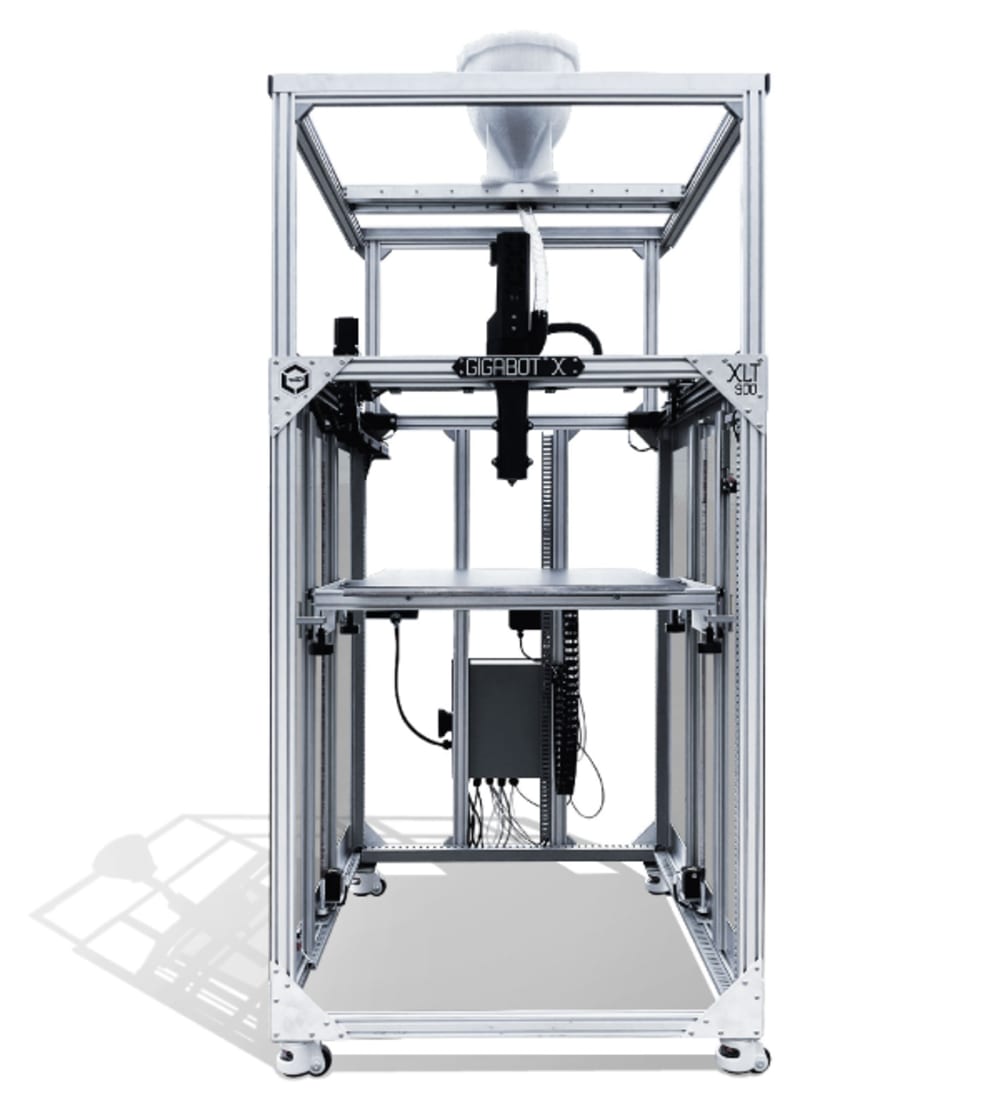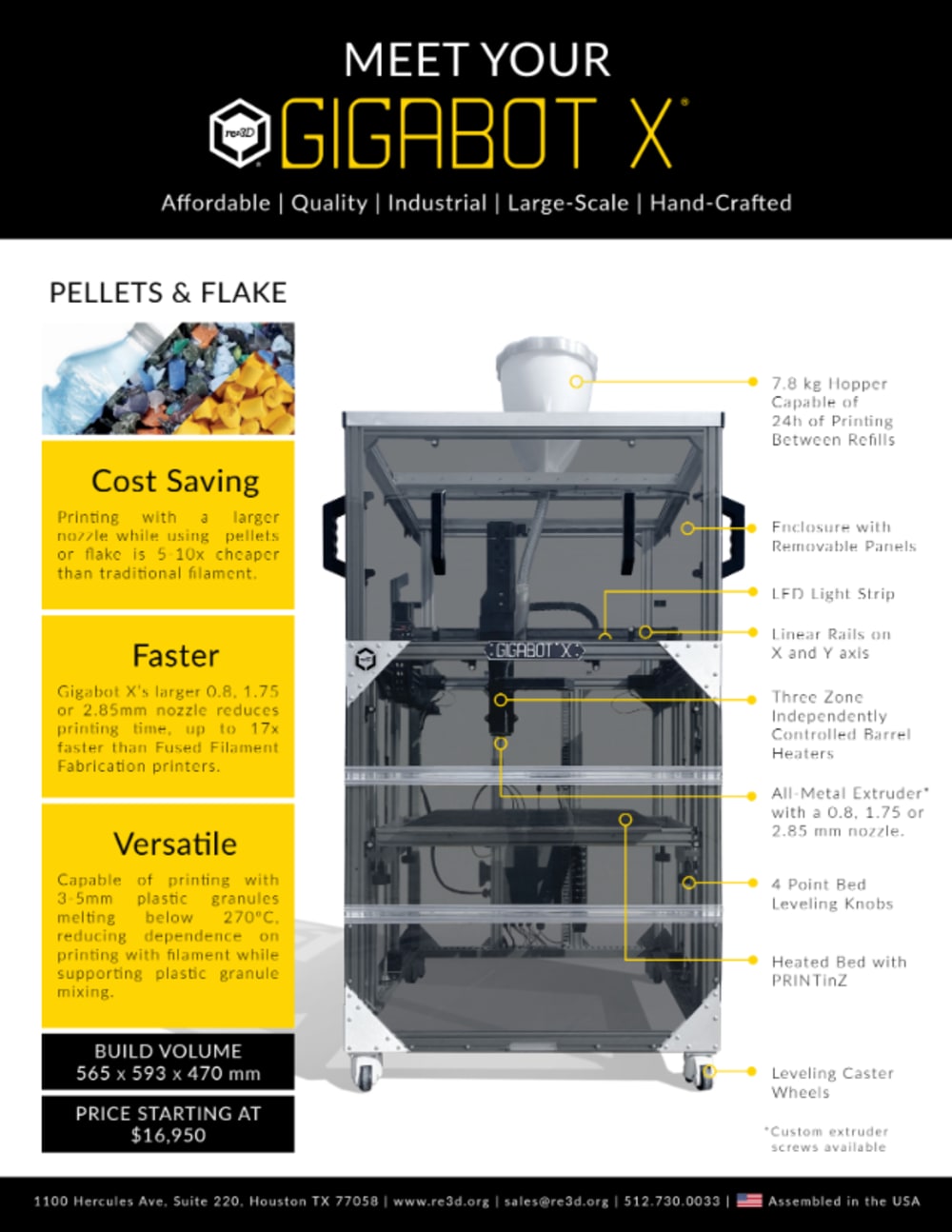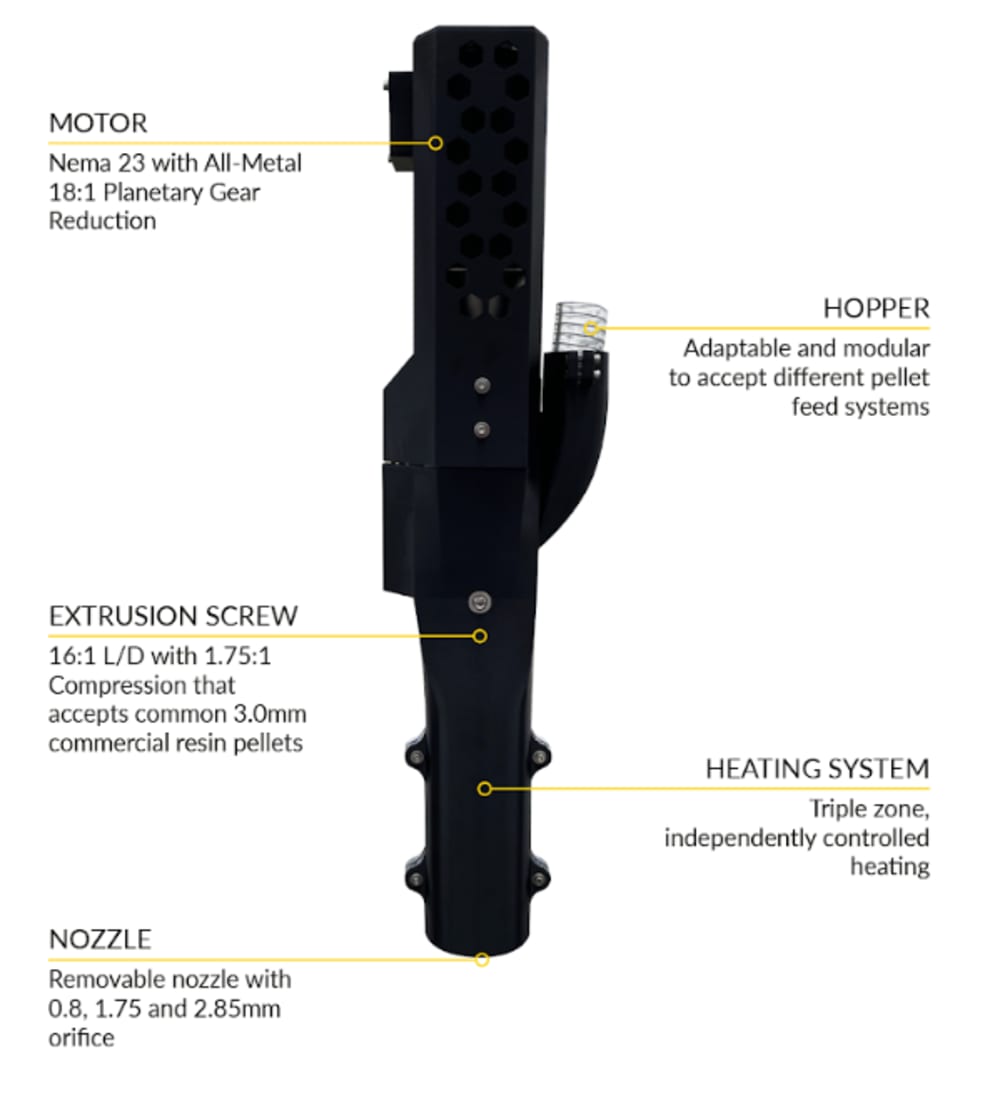
Plastic waste pollution is an increasingly prevalent environmental issue around the world. Many companies produce plastic waste through their manufacturing processes, and resource-limited environments - isolated island populations, natural disaster locations, remote operations, and more - continuously bring in plastic products that end up as waste. In parallel to these issues, individuals in these remote environments often face the challenge of acquiring manufactured tools and resources. Additive manufacturing technologies enable users to solve complex manufacturing and supply chain problems, but these technologies continue to suffer from the barriers of cost, accessibility, and sustainability.
To address these barriers, re:3D developed Gigabot X, a 3D printer that prints directly from polymer pellets, flakes, or recycled regrind, allowing it to revive plastic waste for use in an array of applications. Manufactured in Houston, Texas from off-the-shelf and 3D printed parts, Gigabot X is an industrial-scale Cartesian printer with a build volume of 5.8 cubic feet. The pellet extruder on Gigabot X comprises an extrusion barrel with three heating zones, a compression screw, and interchangeable nozzles to print at different resolutions. The modularity of the extruder body allows for installation on even larger printer frames. Depending on the material, Gigabot X can extrude material 6.5 to 20 times faster than a traditional filament printer, and tensile testing confirms that Gigabot X produces prints with mechanical strength comparable to those produced via filament printing.
Gigabot X’s ability to print with plastic regrind and pellets also provides significant cost savings over traditional 3D printing filament. Almost all plastics - including 3D printing filaments - begin as pellets. Removing the manufacturing step of converting pellets into filament results in pellets being an order of magnitude cheaper than filament. Printing directly from shredded waste plastic can further decrease material costs while also upcycling plastic waste and tackling plastic pollution. A single Gigabot X pellet printer has the potential to repurpose 30k water bottles per month into functional products. Furthermore, local manufacturing with Gigabot X simplifies supply chain management and reduces emissions from transportation and waste removal, amounting not only in cost savings, but also positive environmental impacts.
Within the $9B/year additive manufacturing market, pellet printing is extremely new technology, with only a handful of commercially available solutions. Re:3D believes that pellet printing’s ability to break the cost, accessibility, and sustainability barriers of additive manufacturing will result in a quick adoption of pellet printing into the broader 3D printing market. Pellet printing is especially promising in the automotive, aerospace, and construction sectors, which require scaled up build volumes and large amounts of material per print. The price of a fully-assembled Gigabot X printer is $17k, making it an affordable option on the spectrum of pellet printers currently ranging from $12k to $72k. We already sold beta units in three continents and garnered interest for a range of applications, including research, recycling, furniture design, boat building, and vehicle prototyping. This shows promise that with Gigabot X, supply chains can be re-imagined into circular economies, revolutionizing industries with sustainable manufacturing.
Video
-
Awards
-
 2022 Top 100 Entries
2022 Top 100 Entries
Like this entry?
-
About the Entrant
- Name:Helen Little
- Type of entry:teamTeam members:Helen Little, Samantha Snabes, Matthew Fiedler
- Software used for this entry:Solidworks
- Patent status:none








